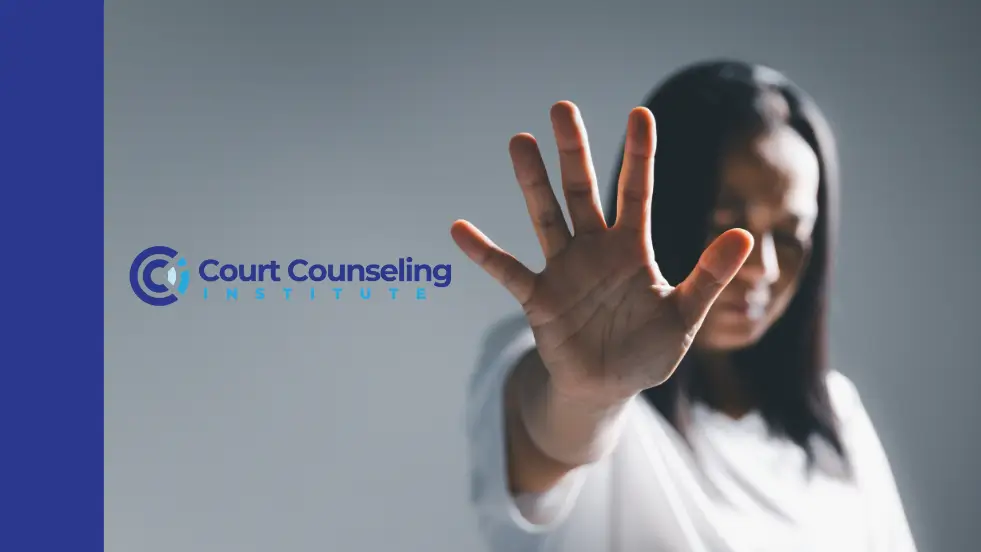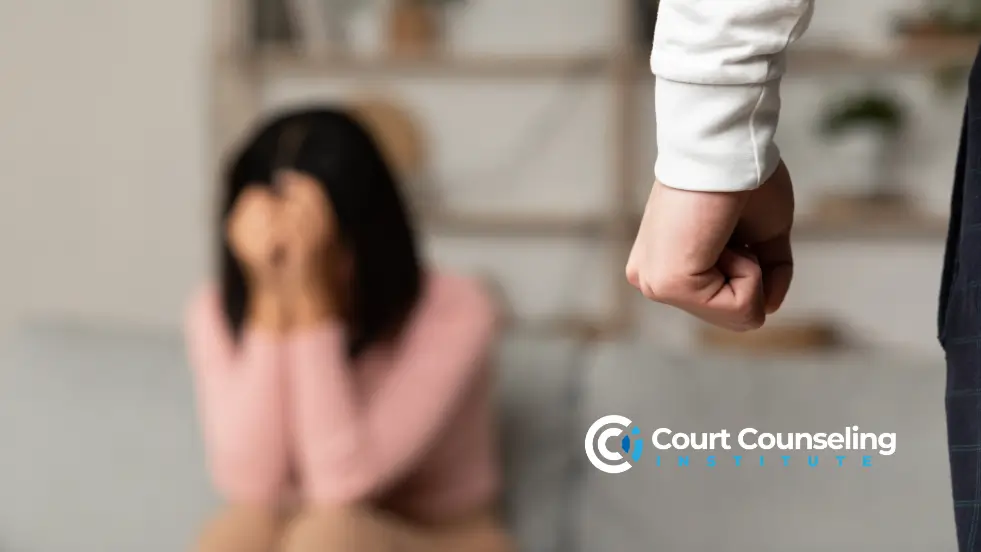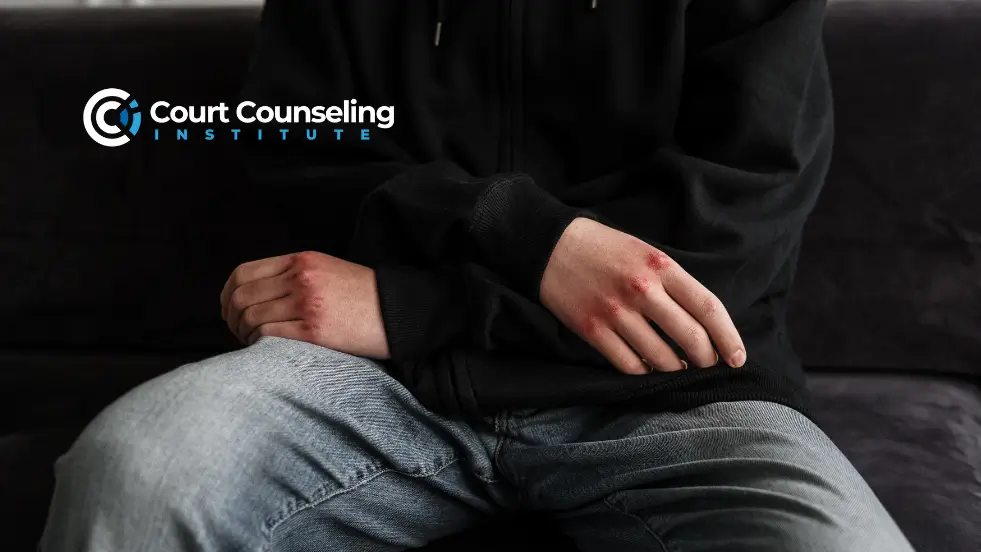
What Is Domestic Violence: Breaking The Silence On Control Not Just The Hit
At first, it might seem like love. Your partner wants to be around you all the time, checks in often, and gets jealous when you talk to other people. They might say they’re just “looking out for you.” But over time, something starts to feel off. That’s how it often begins. A lot of people don’t realize they’re in an abusive relationship until things have already gotten bad. That’s why it’s so important to understand what is domestic violence, and more importantly, to spot the early signs before things escalate.
In this blog post, we’re going to talk about the subtle behaviours that often show up early in unhealthy relationships. These red flags might seem small at first, but they can be the warning signs of something much more serious.
What is Domestic Violence?
Most people think that what is domestic violence only means physical harm like hitting or threats. While those are definitely abuse, domestic violence is much more. It’s about one person trying to control another through physically, emotionally, mentally, or financially. Abuse doesn’t always leave visible bruises; it can be quiet, manipulative and confusing. It often starts with subtle behaviours mistaken for love or passion. That’s why recognizing the early signs of an abusive relationship is so important. Knowing the early signs of relationship abuse or spotting early signs of an abusive partner helps identify red flags in a relationship before things get worse. Understanding what are red flags in a relationship empowers people to protect themselves and seek help. Programs like court counseling institutes offer support and guidance to victims and offenders, helping break the cycle of abuse through education, therapy, and legal resources.
What Is Domestic Violence: The Firsyt Signs of Control You Should Be Aware Of
Let’s look at some of the most common early signs of relationship abuse and why it’s important to address them early. Programs like the Court Counseling Institute can play a crucial role in helping victims recognize these patterns and find safe ways forward, while also providing intervention and education for offenders.
1. Jealousy That Feels More Like Possession
A little jealousy is normal in relationships. But if your partner gets upset when you talk to other people, constantly checks in, or questions who you’re with, it could be more than just concern, it could be control. They might say, “I just care about you,” but if they’re making you feel guilty for spending time with others, that’s a red flag.
2. Put-Downs and Verbal Jabs Disguised as Jokes
Does your partner often joke at your expense? Do you feel embarrassed or belittled in front of others? Early on, it might seem harmless, like teasing, but if their words constantly make you feel small, it could be one of the early signs of an abusive partner. Verbal abuse can wear down your self-esteem, making it harder to recognize when things become more serious.
3. Controlling Behaviour That’s Passed Off as “Love”
Sometimes control doesn’t look like control. It looks like someone picking your clothes, making your plans, or telling you who you can and can’t talk to. It can even be checking your texts or needing your passwords “just in case.” They might say it’s about trust, but real love doesn’t require surveillance.
4. Gaslighting and Making You Feel “Crazy”
Gaslighting is when someone makes you question your own reality. They deny things you saw with your own eyes or flip the blame back on you. If your partner often says things like “You’re imagining things” or “You’re too sensitive,” it might be an attempt to confuse and control you. This is one of the major early signs of relationship abuse.
With the right guidance, the Court Counseling Institute program can help both survivors and offenders address domestic violence head-on, fostering safety, accountability, and lasting change.

What is Domestic Violence: When Small Signs Become Serious Abuse
The Court Counseling Institute works to help people understand what is domestic violence, how it develops, and how to stop it before it escalates. When those small, subtle warning signs grow into serious harm: threats, physical attacks, or total isolation, it can be life-changing and dangerous. Often, people don’t even realize they’re in danger because the shift is so gradual. One day, it’s a raised voice. Then, it’s a slammed door. Eventually, it becomes a shove or worse.
That’s why spotting the early signs of an abusive relationship is critical. Clear red flags in a relationship include being cut off from friends and family, being blamed for everything, or having your money and freedom controlled. A partner might even threaten to hurt themselves or you if you try to leave, one of the most serious early signs of an abusive partner. Knowing what are red flags in a relationship empowers people to act sooner. The Court Counseling Institute program provides education, counseling, and legal guidance to help survivors escape safely and hold abusers accountable, breaking the cycle of domestic violence for good.
What is Domestic Violence: Why People Stay in Abusive Relationships and Why It’s Not Their Fault
Abuse stems from a desire to control, dominate and overpower another person with means of physically, emotionally, mentally, or financially. The Court Counseling Institute works to help people understand what is domestic violence, hold offenders accountable, and break patterns of abuse before they escalate further.
-
- They use retaliation as control. Many abusers maintain power by threatening harm if their partner challenges or leaves them. Recognizing the early signs of an abusive relationship can expose this tactic and stop it before it becomes dangerous.
-
- They create financial dependence. Offenders may limit access to money or prevent their partner from working and making escape harder. This is a common early sign of relationship abuse and a way to trap victims in dependence.
-
- They isolate their partner from friends and family. Isolation is a major red flag in a relationship. Abusers cut off outside support to ensure their partner relies only on them and making control easier to maintain.
-
- They shift blame to the victim. Offenders may make their partner feel ashamed or responsible for the abuse. Understanding what are red flags in a relationship and what is domestic violence makes it clear that abuse is always the abuser’s choice.
-
- They manipulate with false hope. Some offenders apologize, promise change, or show affection briefly to keep their partner invested. Recognizing early signs of an abusive partner helps break this cycle of manipulation.
Abuse is always a choice and it’s never the victim’s fault. The Court Counseling Institute provides counseling, education, and legal interventions to confront abusive behaviours directly, help offenders change, and end the cycle of domestic violence for good.
What is Domestic Violence: How Abuse Shows Up in the Digital World
One growing concern is digital abuse, a modern form of control that can be just as harmful as physical or verbal abuse. With technology woven into our daily lives, many, especially in younger relationships, experience this type of abuse without realizing it. A partner might demand access to your phone, social media accounts, or passwords. They might text or call nonstop, then become angry if you don’t respond right away. Some even use GPS or tracking apps to monitor your movements without consent. While these actions might be disguised as care or concern, they are early signs of an abusive relationship and a serious red flag in a relationship. The Court Counseling Institute program provides education, counseling, and legal guidance to help people recognize and address digital abuse, protecting safety and stopping unhealthy patterns before they escalate.

What is Domestic Violence and What You Can Do If You See the Signs
If any of this sounds familiar, either in your relationship or someone else’s, there are steps you can take. The Court Counseling Institute helps people how to spot domestic violence early, how to take safe and teach practical steps toward change. Here’s What to Do:
Talk to someone you trust a friend, family member, or counselor
If you’re wondering what is domestic violence or noticing early signs of an abusive relationship, talking to someone you trust can be a lifeline. Reach out to a friend, family member, or counselor who can support you and help you recognize red flags in a relationship early on.
Document things keep texts, messages or notes about what’s happening
When you spot early signs of relationship abuse or notice what are red flags in a relationship, documenting everything is important. Keep texts, messages, or notes about what’s happening. This record can protect you and help professionals understand the situation better when you’re ready to get help.
Create a safety plan especially if you’re thinking about leaving
Creating a safety plan is crucial if you recognize early signs of an abusive partner or know what is domestic violence. Especially if you’re thinking about leaving, plan how to stay safe, where to go and who to contact. Recognizing red flags in a relationship early helps with planning.
Get professional help especially if there’s a court requirement or legal involvement
If you see early signs of relationship abuse or wonder what are red flags in a relationship, getting professional help can be essential. Whether there’s legal involvement or a court requirement, experts can guide you through the process and support your safety and well-being.
You don’t have to wait for things to get physical before seeking help. Trust your gut, if something feels wrong, it probably is. The Court Counseling Institute program provides counseling, legal guidance, and education to protect survivors, confront abuse, and stop the cycle of domestic violence.
What is Domestic Violence: How Court Counseling Institute Can Support You
At Court Counseling Institute, we help individuals facing relationship challenges, legal stress, or court-ordered counseling. Our court-approved programs are also open to anyone wanting to better understand their behaviour and recognize unhealthy patterns. If you’re trying to figure out what is domestic violence or learn to spot the early signs of an abusive relationship, we’re here to help. Our online programs are private, easy to access, and created by experienced professionals. We focus on identifying the early signs of relationship abuse, the early signs of an abusive partner, and the red flags in a relationship that are often missed.
If any of this sounds familiar, whether in your relationship or someone else’s, there are actions you can take before things escalate. Talk to someone you trust, document what’s happening, create a safety plan, and seek professional help. Knowing what are red flags in a relationship can change everything. The Court Counseling Institute uses over 20 years of expertise to help survivors stay safe, confront abuse, and break the cycle of domestic violence for good.
Break the Silence: Help Stop Domestic Violence Now
If you or someone you love is seeing the early signs of an abusive relationship, don’t wait to get help. Contact us to connect with professionals who understand your journey and where you want to go.


